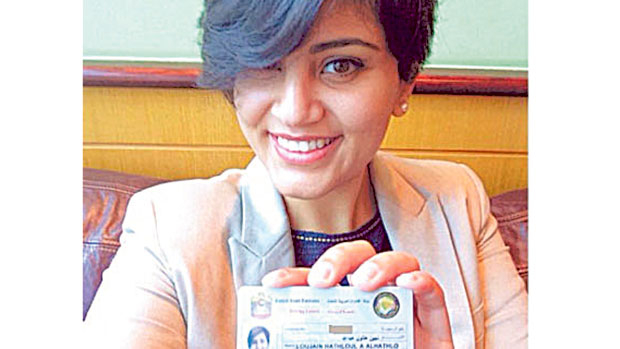
Riyadh: Two women’s rights activists held for more than three weeks in Saudi Arabia are to appear in court on Thursday, activists said.
Loujain Hathloul has been detained since December 1 after she tried to drive into the kingdom from neighbouring UAE in defiance of a ban.
Saudi Arabia is the only country in the world which does not allow women to drive.
Maysaa Al Amoudi, a UAE-based Saudi journalist, arrived at the border to support Hathloul and was also arrested.
Activists did not have complete details of allegations against the pair, but said the focus of investigators seemed to be on their social media activities rather than their driving.
“They can’t make a charge against them for driving, because they used their car in another country,” the UAE, one activist said.
The Ministry of Interior referred enquiries to Saudi Arabia’s prosecution service.
Hathloul has 228,000 followers on Twitter.
Before her arrest she tweeted, sometimes with humour, details of the 24 hours she spent waiting to cross into Saudi Arabia after border officers stopped her.
Al Amoudi has 131,000 followers and has also hosted a programme on YouTube discussing the driving issue.
The court hearings are to take place in Al Ahsa, in the kingdom’s Eastern Province, activists said.
In early December Saudi authorities blocked the website of a regional human rights group, the Gulf Centre for Human Rights, which reported the women’s case.
Reporters Without Borders, a watchdog, this year named Saudi Arabia as one of 19 countries where government agencies are “enemies of the internet” for their censorship and surveillance.
During October, dozens of women drove in the kingdom and posted images of themselves doing so as part of an online campaign supporting the right to drive.
In response, the Ministry of Interior said it would “strictly implement” measures against anyone undermining “the social cohesion”.
Activists say women’s driving is not actually illegal but the ban is linked to tradition and custom in the kingdom.











